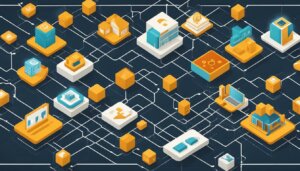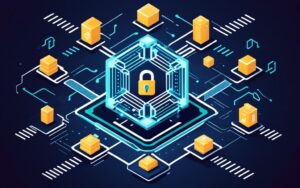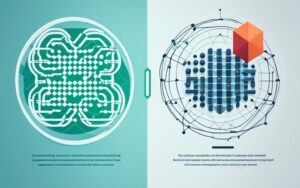Table of Contents
Educational Opportunities of Blockchain
The integration of blockchain technology in the education sector is transforming the landscape, offering unprecedented opportunities for innovation and growth. As we move into 2024, educational institutions worldwide are recognizing the potential of blockchain to revolutionize various aspects of learning and administration. This technology’s ability to provide secure, transparent, and immutable records is driving its adoption, ensuring that educational credentials and achievements are verifiable and tamper-proof. The growing interest in blockchain is set to reshape the future of education, making it more efficient, accessible, and equitable.
Blockchain’s Role in Academic Credentials
Blockchain technology plays a crucial role in securing and verifying academic credentials. By leveraging its decentralized and immutable nature, educational institutions can ensure the authenticity of diplomas, certificates, and transcripts. Katherine Phillips, an experienced educator and career advisor, highlights the importance of blockchain in combating credential fraud and enhancing trust in academic qualifications. This technology not only simplifies the verification process but also provides students with a permanent and accessible record of their achievements. These advancements underscore the significant educational opportunities of blockchain that are emerging as we move into 2024.
Blockchain-Based Learning Platforms
The rise of blockchain-based learning platforms is transforming the educational experience by offering secure and transparent environments for both educators and learners. These platforms facilitate decentralized content delivery and peer-to-peer learning, ensuring that educational resources are accessible and trustworthy.
Benefits of Blockchain in Learning Platforms
Blockchain technology offers numerous benefits to learning platforms, including enhanced security and data integrity. It provides greater transparency in content delivery and assessment, increases student engagement through interactive and gamified learning experiences, and improves accessibility and inclusivity.
Case Studies of Successful Blockchain Learning Platforms
Several blockchain-based learning platforms have already demonstrated significant success in improving educational outcomes. For example, platforms like ODEM and BitDegree utilize blockchain to provide verifiable micro-credentials and facilitate direct interaction between students and educators. These platforms have enhanced transparency, reduced costs, and fostered a more engaging learning environment.
Lifelong Learning Opportunities with Blockchain
Blockchain technology supports lifelong learning by creating a permanent, verifiable record of skills and achievements. This record can be continually updated, allowing individuals to showcase their competencies and track their learning journey over time.
Micro-credentials and Badges
Micro-credentials and digital badges, enabled by blockchain, are becoming increasingly important in recognizing and validating skills. These credentials provide a more granular and flexible way to certify learning outcomes, making it easier for learners to demonstrate their expertise in specific areas.
Continuing Education Programs and Blockchain
Educational institutions can integrate blockchain into their continuing education programs to track and verify learners’ progress. This integration ensures that achievements are accurately recorded and recognized, promoting lifelong learning and professional development.
Educational Research Advancements with Blockchain
Blockchain technology is poised to significantly impact educational research by ensuring data integrity, enhancing collaboration, and facilitating open access to research findings.
Research Data Security Solutions
The importance of data security in educational research cannot be overstated. Blockchain provides a secure and tamper-proof solution for storing and sharing research data, ensuring that findings are reliable and verifiable. Traditional data security measures often face challenges in maintaining data integrity and preventing tampering, whereas blockchain’s decentralized nature offers high-level security and transparency.
Collaboration Improvements Among Researchers
Blockchain enhances collaboration among researchers by providing a transparent and secure platform for sharing data and findings. This transparency fosters trust and encourages more open and productive collaborations, ultimately advancing the field of education.
Managing Financial Aid and Scholarships with Blockchain
Blockchain technology can streamline the management of financial aid and scholarships, ensuring transparency and reducing fraud. By utilizing blockchain, educational institutions can create a secure and efficient system for awarding and tracking financial assistance.
Examples of Blockchain in Scholarship Programs
Several institutions have successfully implemented blockchain for managing scholarships. For instance, the University of Bahrain uses blockchain to issue digital diplomas and certificates, simplifying the verification process for scholarship applications. These implementations have increased efficiency, reduced administrative costs, and enhanced transparency.
Personalized Education Paths Using Blockchain
Blockchain supports personalized education paths by securely recording and tracking individual learning experiences and achievements. This capability allows for the creation of tailored educational journeys that cater to each learner’s unique needs and goals.
Adaptive Learning Technologies
Adaptive learning technologies leverage blockchain to enhance their effectiveness. By providing a secure and transparent record of learning activities, blockchain enables adaptive systems to deliver personalized content and feedback, improving learning outcomes for students.
Student Privacy Protection with Blockchain
Concerns about student privacy are paramount in the digital age. Blockchain technology can protect personal information while enabling personalized learning by ensuring that data is stored securely and accessed only by authorized parties. Key privacy features include decentralized data storage, encrypted personal information, and permissioned access controls.
Conclusion: The Future of Blockchain in Education
In conclusion, blockchain technology holds immense potential to revolutionize the education sector. Its ability to provide secure, transparent, and verifiable records will enhance the efficiency and integrity of educational processes. As we move forward, staying informed about emerging opportunities in blockchain will be crucial for educators, students, and institutions alike. Embracing this technology can lead to more equitable and innovative educational experiences, ultimately shaping the future of learning.









